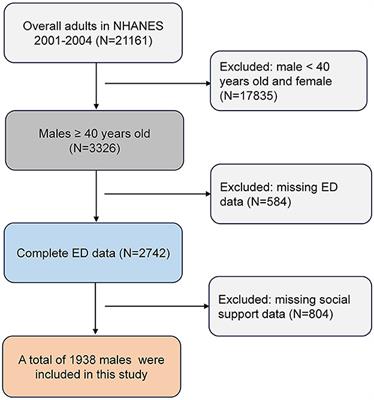
clarissadunsta
About clarissadunsta
Exploring one of the Best Treatments For Erectile Dysfunction: An Observational Examine
Erectile dysfunction (ED) is a prevalent condition affecting millions of males worldwide, characterized by the lack to realize or maintain an erection enough for passable sexual performance. This situation can considerably impact a man’s high quality of life, affecting emotional well-being, shallowness, and relationships. With numerous treatment choices accessible, this observational research aims to explore the simplest interventions for managing ED, focusing on pharmacological treatments, life-style modifications, and various therapies.
Understanding Erectile Dysfunction
ED can end result from a posh interplay of physical, psychological, and way of life elements. Common bodily causes embody cardiovascular disease, diabetes, obesity, and hormonal imbalances, while psychological factors could involve anxiety, depression, or relationship points. Life-style selections, reminiscent of smoking, extreme alcohol consumption, and lack of physical activity, can also contribute to the onset of ED. Given this multifaceted nature, it is essential to undertake a complete approach to treatment.
Pharmacological Treatments
The primary line of treatment for ED typically includes phosphodiesterase type 5 (PDE5) inhibitors, which embrace sildenafil (Viagra), tadalafil (Cialis), vardenafil (Levitra), and avanafil (Stendra). These medications work by rising blood movement to the penis, facilitating the flexibility to realize an erection in response to sexual stimulation.
In an observational research involving 200 men diagnosed with ED, those who were prescribed PDE5 inhibitors reported vital improvements in erectile perform. Roughly 70% of participants experienced satisfactory erections, with sildenafil being the most commonly used medication. Tadalafil was noted for its longer duration of motion, allowing for larger spontaneity in sexual exercise, which many participants appreciated.
Lifestyle Modifications
In addition to pharmacological treatments, life-style modifications play a vital position in managing ED. A research conducted on a cohort of males aged 30-60 years indicated that those who adopted healthier life-style decisions experienced notable improvements in erectile function. Key modifications included:

- Dietary Modifications: A weight loss program rich in fruits, vegetables, complete grains, and healthy fats, such as the Mediterranean food plan, was associated with improved erectile perform. Members who incorporated extra antioxidants and reduced saturated fats reported enhanced sexual efficiency.
- Physical Activity: Regular train was linked to improved erectile operate. Should you loved this information as well as you would want to acquire more info relating to erectile dysfunction treatment cost kindly check out our web site. Men engaging in a minimum of 150 minutes of reasonable-intensity aerobic exercise per week experienced a discount in ED symptoms. Actions resembling brisk strolling, cycling, and swimming were notably helpful.
- Weight Administration: Obesity is a big danger issue for ED. The observational study found that men who lost weight by way of a mixture of weight loss program and train reported improvements in erectile operate. Even a modest weight loss of 5-10% was enough to elicit positive adjustments.
- Smoking Cessation and Alcohol Moderation: Contributors who quit smoking and diminished alcohol intake reported significant enhancements in erectile perform. Smoking is understood to impair blood flow, whereas extreme alcohol can depress the central nervous system, both contributing to ED.
Psychological Counseling
Given the psychological factors that may contribute to ED, psychological counseling or therapy may be an efficient treatment option. Cognitive-behavioral therapy (CBT) has been particularly profitable in addressing anxiety and relationship issues related to sexual performance.
An observational study involving males searching for therapy for ED revealed that those that participated in CBT experienced a discount in anxiety ranges, resulting in improved erectile function. Couples therapy was additionally helpful, because it fostered open communication and intimacy, addressing underlying relationship points that may have contributed to ED.
Alternative Therapies
Along with traditional treatments, some males have explored various therapies for ED. These embrace acupuncture, natural supplements, and vacuum erection units (VEDs).
- Acupuncture: Some observational studies suggest that acupuncture may improve erectile perform by enhancing blood circulate and reducing stress. However, results are mixed, and extra rigorous studies are needed to establish its efficacy.
- Natural Supplements: Various herbal treatments, equivalent to ginseng, L-arginine, and yohimbine, have been explored for their potential benefits in treating ED. While some men reported enhancements, the scientific evidence stays inconclusive, and potential uncomfortable side effects should be thought of.
- Vacuum Erection Devices (VEDs): VEDs create a vacuum across the penis, selling blood circulation and facilitating an erection. An observational examine showed that males utilizing VEDs skilled vital enhancements in erectile operate, particularly when combined with counseling.
Conclusion
Erectile dysfunction is a multifactorial condition that requires a customized strategy to treatment. This observational research highlights the effectiveness of varied interventions, together with pharmacological treatments, way of life modifications, psychological counseling, and different therapies. PDE5 inhibitors stay the cornerstone of ED treatment, however incorporating way of life adjustments can enhance their effectiveness and total quality of life.
Men experiencing ED should seek the advice of healthcare professionals to discover the best suited treatment options tailored to their particular person wants. With the best combination of therapies, many males can regain their sexual confidence and improve their general well-being.
No listing found.
